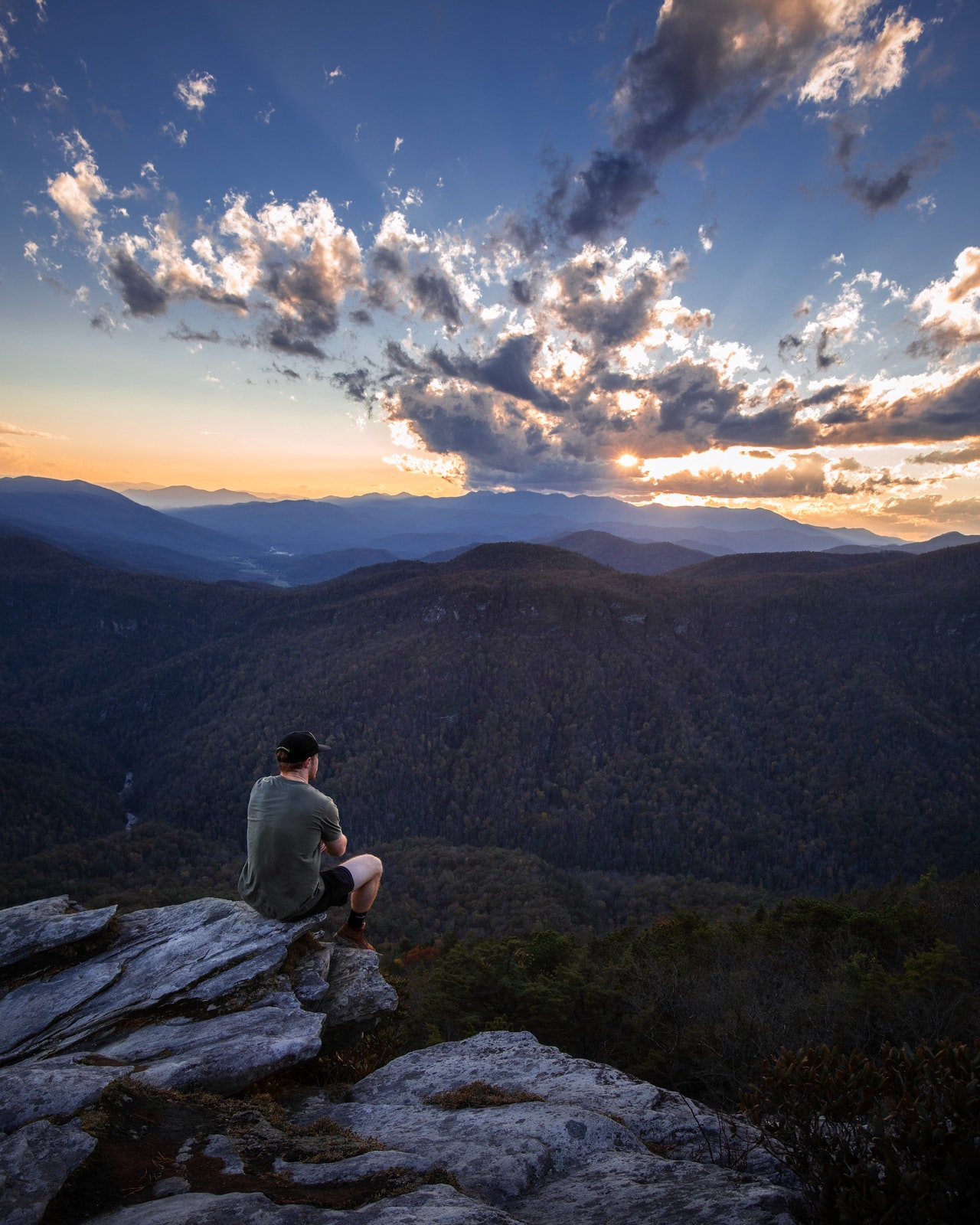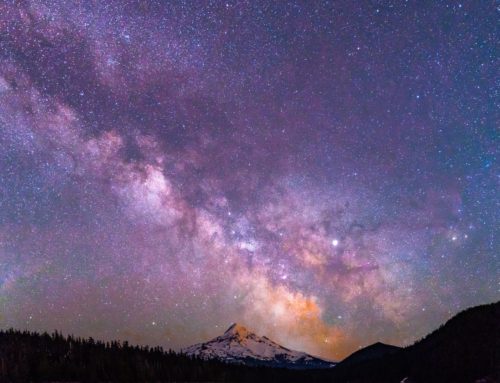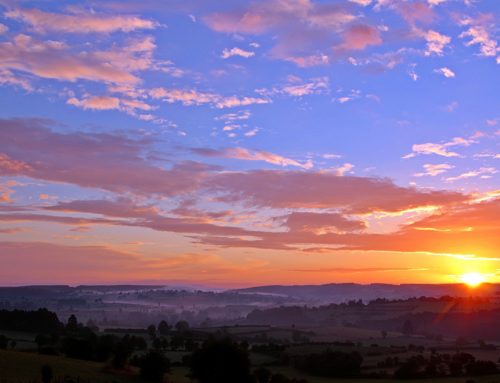There is something about being on top of a mountain and being able to stop and wonder over the breadth of scenery that falls away to the horizon. I remember one of the few skiing trips I made with my mother and siblings many years ago, learning to use cross-country skis and falling over a lot! We had a friend instructing us who seemed to fly effortlessly down the slopes, with such grace and ease, and then there were the primary age kids whizzing past us as if they were born with skis on. It was a great day, with blue skies, fresh air and sunshine, and all was going well when my mother fell and broke her leg! It was a long way from the car but we strapped some skis together to make a sled and sat my mother down with a pack on her back to keep her comfortable, and the rest of the afternoon found us pushing the sled up the slope to the top of the mountain. We managed to reach the top near where the cars were parked as the sun was setting with all its glorious hews of pink and gold. My mother was very relieved to find herself in the strong arms of paramedics waiting in the car park, but she did take time to enjoy the glory of that sunset from the summit.
Our gospel reading this Sunday also takes us up a mountain, joining the disciples as they follow Jesus to the top. Mountains in the scriptures are often places of revelation. Think of Moses on Mount Sinai or Elijah on Mount Carmel. It was on these high and remote places that they encountered the mystery of God’s presence that so altered the course of their lives.
Going away to remote places – places of solitude and retreat – has long been a spiritual practice within the church, as we seek to step away from well-worn routines, or take a break from the normal pressures of work in order to find space in our hearts and minds for God’s still small voice to be heard. I remember going on an eight-day silent retreat where each day felt as though I was becoming more and more still – like going through the layers of an onion toward the stillness of the centre. Is this something you would be interested to experience?
Sometimes going away to a place of solitude can open us to seeing things from a different perspective. At the Abbey on Iona in Scotland parish groups would come to stay for a week, and during that time be exposed to new songs, patterns of worship and daily prayer that were unfamiliar to them, walking in pilgrimage around the Island and engaging in conversations and reflections that they then carried back to their parishes.
Peter, James and John had little understanding of what would happen as they climbed that mountain with Jesus. They also had little time to enjoy the view for a cloud came down and they could see nothing. It can be very disorienting being in a cloud on the top of a mountain, and it was even more disorienting when light seemed to reflect and shine with a brilliance unknown to them when Jesus was transfigured before them. It was as though light was shining from him. And with him were Moses and Elijah, two of the greatest prophets of old who represent between them the Law and the Prophets, the gracious guidance given through them to lead God’s people into a way of peace. They were speaking with Jesus about his Exodus, his departure.
Then all of sudden there is a voice declaring Jesus’ identity:
‘My Son –my chosen One – listen to him!’
Lent is a time of listening to Jesus. It was all too much for the disciples and its seems that only much later did they really grasp the meaning of all this. Sometimes it takes time for the penny to drop. The Transfiguration brings the season of Epiphany to a close – that season of revealing Jesus to us. The Transfiguration is a pivotal day pointing us forward through Lent to Easter where Jesus’ ‘Exodus’ – his departure, his death and his rising again, will make all this clear and prefigure our transfiguration.
Peter
Photo by Trace Hudson from Pexels





